Freelancing has firmly taken root in the UK, with more professionals choosing flexible careers over traditional office jobs. By 2025, the market has matured into a thriving ecosystem where businesses rely heavily on freelance talent, and platforms act as the bridge between opportunity and expertise. From global giants with millions of users to niche platforms catering to specific industries, freelancers in the UK have no shortage of options. The challenge lies in knowing which sites actually deliver quality projects, fair pay, and growth potential.
This guide breaks down the top freelancing websites for UK professionals in 2025, highlighting what makes each platform worth considering and how they fit different career paths.

Flexable
Flexable is one of the newer entrants in the freelancing market, but it has quickly positioned itself as a platform worth watching in 2025. What sets it apart is its blend of opportunities for both independent freelancers and agencies. Instead of just offering small, transactional gigs, Flexable leans into larger, collaborative projects where solo talent can work alongside teams. This gives freelancers room to scale beyond one-off jobs and move into more consistent, higher-value contracts. While its reach is strongest in the United States and India, it is steadily building momentum with a community of over 1 Lakh freelancers and 5,000 agencies.
Highlights and Key Features
- A curated onboarding process ensures only vetted freelancers and serious clients join the platform, which improves quality on both ends.
- The project flow is simple: freelancers set up detailed profiles, clients post projects, and proposals are submitted with timelines and rates.
- Once hired, projects can be tracked through Flexable’s built-in tools, which cover communication, milestone tracking, and payment.
- An AI-driven recommendation system helps freelancers find relevant projects faster instead of wading through irrelevant listings.
- Payments are secure and tied to milestones, with a transparent rating system that helps build credibility over time.
Pros
- Strong early traction in key markets like the US and India.
- Supports both freelancers and agencies, making it versatile for different scales of work.
- Curated onboarding reduces spam and low-quality job posts.
- Built-in project management tools simplify collaboration and delivery.
Cons
- Limited brand recognition compared to established platforms.
- Smaller overall client base, which may limit specialized opportunities.
- Less effective for freelancers outside its core markets, since global expansion is still in progress.
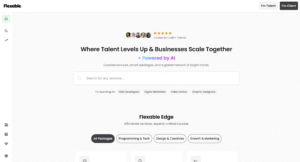
Reed.co.uk
Reed.co.uk is one of the UK’s largest online job boards, and while it’s traditionally known for full-time employment, it has carved out a strong presence in the freelance and contract market. For professionals seeking flexible work arrangements without leaving the UK, Reed offers access to thousands of listings across industries such as IT, finance, marketing, education, and healthcare. What makes Reed attractive to freelancers is its ability to blend permanent and contract opportunities, giving professionals more options as their careers evolve.
Highlights and Key Features
-
Extensive listings for both permanent roles and freelance/contract projects.
-
Advanced search filters tailored to industries, pay rates, and contract types.
-
Direct applications to verified employers and recruitment agencies.
-
Career resources, including training and certifications, integrated into the platform.
-
Regular updates, with thousands of new roles added weekly.
Pros
-
One of the most recognized job platforms in the UK, ensuring credibility.
-
Wide coverage across multiple industries and contract types.
-
Reliable access to corporate clients and established recruitment agencies.
-
Helpful career resources that support skill growth beyond just finding jobs.
Cons
-
Platform is not exclusively designed for freelancers, so navigation can feel cluttered.
-
High competition for roles due to Reed’s popularity with job seekers.
-
Some postings favor agency placements over direct client relationships.
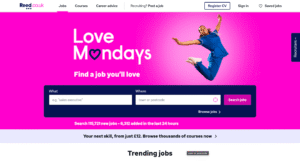
YunoJuno
YunoJuno has established itself as one of the UK’s premium freelance platforms, especially popular with creative and tech professionals. Unlike open marketplaces where anyone can sign up, YunoJuno operates as a curated network, focusing on matching highly skilled freelancers with top-tier clients. Its strength lies in bridging the gap between independent talent and large organizations that need trusted expertise. From creative agencies to major brands, YunoJuno is designed for freelancers who want high-value projects without the noise of low-budget listings.
Highlights and Key Features
-
Invitation and vetting process ensures a high-quality talent pool.
-
Strong client base, including well-known UK brands and agencies.
-
Built-in contract management and invoicing system for smooth operations.
-
Emphasis on mid-to-long-term projects rather than one-off gigs.
-
Transparent payment process with reliable timelines.
Pros
-
Access to premium projects with established companies.
-
Less competition due to curated freelancer pool.
-
Built-in compliance and contract tools reduce admin burden.
-
Focus on creative, marketing, and tech industries where rates are higher.
Cons
-
Not beginner-friendly due to its selective entry requirements.
-
Limited to certain industries, making it less useful for general freelancers.
-
Smaller volume of projects compared to larger global platforms.
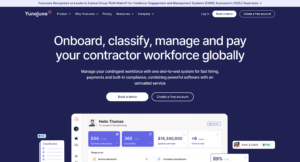
Malt UK
Malt is a fast-growing European freelancing platform that has expanded its footprint into the UK market. It positions itself as a modern alternative to traditional job boards and global marketplaces by creating a community-driven ecosystem where freelancers and clients work more transparently. Unlike platforms that hide rates or act as middlemen, Malt encourages freelancers to set their own prices and negotiate directly with clients. Its UK branch focuses on creative, digital, and tech talent, attracting startups and established businesses looking for skilled professionals without the overhead of agencies.
Highlights and Key Features
-
Transparent profiles that display rates, skills, and client reviews.
-
Direct communication between freelancers and clients without hidden bidding systems.
-
Strong European network with growing UK-based opportunities.
-
Integrated contract and payment system to ensure security.
-
Emphasis on long-term collaborations over one-off gigs.
Pros
-
Freelancers have full control over pricing and client relationships.
-
Transparent system builds trust and credibility.
-
Expanding client base across both startups and established firms in the UK.
-
Supportive of freelancers in creative and digital sectors.
Cons
-
Still growing in the UK, so project volume is lower compared to more established sites.
-
Not as strong for industries outside tech, marketing, and creative work.
-
International competition may limit purely local UK opportunities.
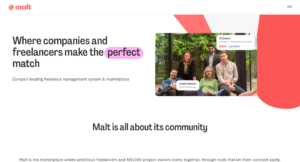
Creativepool
Creativepool is a dedicated platform for creative professionals, offering freelancers in design, advertising, marketing, and media a space to showcase their work and connect with employers. Unlike traditional job boards, Creativepool doubles as a professional network, allowing freelancers to build visibility through portfolios, community interaction, and industry insights. It is particularly popular with UK-based agencies and brands looking for creative talent, making it a strong choice for freelancers who want to stand out in competitive fields like graphic design, copywriting, filmmaking, and digital marketing.
Highlights and Key Features
-
Portfolio-driven profiles that emphasize creativity over simple CVs.
-
A vibrant community with articles, industry news, and networking opportunities.
-
Job listings tailored to creative industries, including freelance and contract roles.
-
“Annual Creativepool Awards” spotlight talent and boost exposure.
-
Direct messaging and networking features to connect with peers and clients.
Pros
-
Built specifically for the creative sector, offering relevant opportunities.
-
Strong visibility through portfolios and community engagement.
-
Opportunities to connect not only with clients but also with other creatives.
-
Recognition through awards and community features adds credibility.
Cons
-
Less relevant for freelancers outside creative and media industries.
-
Competition for high-profile opportunities can be intense.
-
Some job listings are agency-driven, adding layers between freelancers and end clients.

Freelancer.co.uk
Freelancer.co.uk is the UK-focused version of the global platform Freelancer.com, one of the largest freelancing marketplaces in the world. It connects UK-based freelancers with businesses both locally and internationally. The platform caters to a wide range of industries, from IT and software development to design, writing, and marketing. What sets it apart in the UK is its ability to serve both small local businesses looking for affordable talent and larger companies outsourcing specialist projects. With bidding, contests, and milestone-based payment systems, it provides flexibility but also comes with tough competition.
Highlights and Key Features
-
Localized site for UK freelancers with access to global opportunities.
-
Option to earn through project bidding or creative contests.
-
Escrow-secured payments for financial safety.
-
Membership tiers that unlock more bids and visibility.
-
Progress tracking tools to manage deliverables and communication.
Pros
-
Massive client base with diverse project categories.
-
UK localization helps freelancers connect with nearby clients as well as global ones.
-
Flexible earning methods: contests, hourly, or milestone projects.
-
Escrow protection ensures fair transactions.
Cons
-
High competition, especially for lower-budget projects.
-
Free membership limits the number of bids.
-
Many postings can be low-value, requiring careful filtering.

TaskRabbit UK
TaskRabbit UK operates differently from traditional freelancing platforms by focusing on local, task-based work. It connects freelancers—called “Taskers”—with individuals and businesses who need help with everyday services such as furniture assembly, home repairs, cleaning, moving, and delivery. While it is less about digital or creative freelancing, TaskRabbit has become a go-to platform for people seeking flexible, hands-on work. In the UK, it is especially popular in major cities like London, Manchester, and Birmingham, where demand for on-demand help is constant.
Highlights and Key Features
-
Local matching system that connects freelancers with clients nearby.
-
Categories span home services, handyman tasks, personal assistance, and moving help.
-
Secure, cashless payments handled directly through the app.
-
Flexible scheduling lets freelancers choose when and where they work.
-
Ratings and reviews build trust and visibility over time.
Pros
-
Reliable source of local, quick-turnaround work.
-
Flexibility to set your own schedule and accept tasks that fit your skills.
-
Strong demand in major UK cities ensures consistent opportunities.
-
Straightforward, app-based system for finding and completing tasks.
Cons
-
Limited to local, physical work—less suitable for digital professionals.
-
Service fees reduce overall earnings.
-
Heavily dependent on demand in your immediate area, making rural coverage weaker.
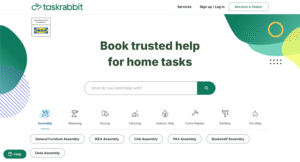
Simply Hired UK
SimplyHired UK functions as both a job search engine and a freelancing platform. It aggregates postings from across the web, giving freelancers and job seekers a single destination to discover opportunities. While it is not exclusively freelance-focused, the platform includes thousands of contract, temporary, and remote roles that can be ideal for independent professionals. Its strength lies in its broad coverage, pulling listings from company websites, job boards, and recruitment agencies in the UK.
Highlights and Key Features
-
Aggregates jobs and freelance opportunities from multiple sources.
-
Easy search filters for role type, pay, and location.
-
Salary estimator tool gives transparency before applying.
-
Clean interface that simplifies browsing and application.
-
Mobile-friendly design for quick job searches on the go.
Pros
-
Large pool of opportunities from many different industries.
-
Good resource for freelancers seeking contract or part-time roles.
-
Salary transparency helps with decision-making.
-
Simple and user-friendly platform.
Cons
-
Not purely freelance-focused, which means more time spent filtering.
-
Some listings redirect to third-party sites before applying.
-
Limited community or networking features compared to dedicated freelance platforms.
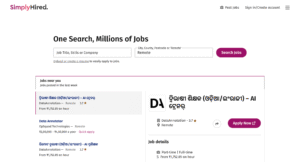
Indeed UK
Indeed UK is one of the largest job search platforms in the country, covering everything from full-time roles to part-time, temporary, and freelance contracts. While it is not exclusively a freelancing platform, it has become a valuable resource for independent professionals who want to find short-term projects or flexible contracts alongside traditional job postings. Its strength lies in the sheer volume of listings, making it a reliable place for freelancers to discover new opportunities across industries such as IT, marketing, design, writing, and customer service.
Highlights and Key Features
-
Massive database of job and contract opportunities across the UK.
-
Advanced filters to sort by pay, contract type, location, or remote options.
-
Free job alerts that notify freelancers about new opportunities.
-
Built-in CV upload and application tracking system.
-
Employer reviews that give insight into company culture and reliability.
Pros
-
Extremely high volume of postings in almost every sector.
-
Flexibility to find freelance, temporary, and remote contracts.
-
Salary and company reviews help with informed decision-making.
-
Simple to use with free tools for applications and alerts.
Cons
-
Not exclusively tailored to freelancers, requiring more filtering.
-
Competition can be high for attractive freelance contracts.
-
Many listings redirect to external employer sites for applications.
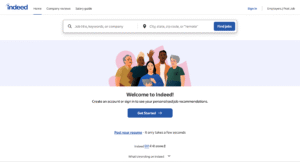
Upwork
Upwork is the largest and most established freelancing marketplace in 2025. It connects millions of professionals with clients across industries like tech, design, writing, and marketing. For many freelancers, Upwork is the entry point into the industry because of its global reach and volume of opportunities. Unlike niche platforms, it caters to both quick, one-off tasks and long-term contracts, making it flexible for different stages of a freelancer’s career. However, the size of the marketplace comes with heavy competition, and standing out requires a polished profile and a clear strategy.
Highlights and Key Features
- A wide range of categories, from software development to creative services.
- AI-driven job matching that recommends projects based on skills and past work.
- Escrow-protected payments that safeguard both freelancers and clients.
- Collaboration tools, including messaging, time tracking, and file sharing, built directly into the platform.
- Transparent client histories that let freelancers evaluate who they are working with.
Pros
- Enormous variety of jobs, from entry-level gigs to contracts with Fortune 500 companies.
- Global reach means freelancers can build an international client base.
- Flexible project types, including hourly and milestone-based work.
- Trusted escrow system provides financial security.
Cons
- High competition, especially for beginners trying to land their first projects.
- Service fees start at 20 percent for the first $500 earned with a client, decreasing only with larger contracts.
- Proposals require “Connects,” which cost money and add another barrier for new users.

Fiverr
Fiverr has built its reputation on simplicity. Instead of bidding on projects, freelancers create pre-packaged services called “gigs” that clients can purchase directly. This makes it one of the easiest platforms for new freelancers to start with, since the process is closer to running an online store than competing in a crowded bidding environment. Fiverr is especially popular among creatives like writers, designers, video editors, and marketers who can define clear deliverables. In 2025, the platform has grown more sophisticated with Fiverr Neo, an AI-powered matching system that helps freelancers connect with the right clients faster.
Highlights and Key Features
- Gig-based pricing structure with tiered packages for different budgets and scopes.
- Fiverr Neo, an AI assistant, improves client-freelancer matching.
- Messaging system for direct communication between buyers and sellers.
- Built-in portfolio tools for showcasing past work.
- Seller levels that increase visibility as freelancers build a track record.
Pros
- Easy setup makes it beginner-friendly.
- Transparent, upfront pricing appeals to clients.
- Ideal for creative professionals offering repeatable services.
- AI matching reduces the time spent searching for relevant projects.
Cons
- Commission is 20 percent across all earnings, which can feel steep.
- Competition is largely price-driven, making it harder to charge premium rates without strong reviews.
- Heavy reliance on ratings and reviews for visibility means slow growth for new sellers.
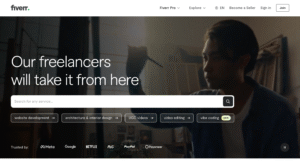
Toptal
Toptal positions itself as an exclusive network that connects the top three percent of freelancers with premium clients. It is best known in fields like software development, design, finance, and project management. Unlike open marketplaces, Toptal uses a rigorous screening process that includes language tests, technical evaluations, and live interviews. Only a small fraction of applicants are accepted, which creates an elite environment where clients know they are hiring proven professionals. For experienced freelancers, Toptal offers access to long-term, high-paying projects with companies ranging from startups to global enterprises.
Highlights and Key Features
- Extensive vetting process that ensures high standards.
- Client matches are made quickly, often within 48 hours of acceptance.
- Secure payment system with hourly rates typically between 100 and 250 dollars.
- Dedicated project management tools to streamline collaboration.
- Access to premium clients, including established brands and funded startups.
Pros
- High-value projects with consistent, well-paying work.
- Strong credibility due to selective entry standards.
- Faster client matching compared to open bidding platforms.
- Long-term contracts are common, offering stability.
Cons
- Very selective application process excludes most freelancers.
- Focused heavily on technical and design roles, with limited opportunities in other categories.
- Not suitable for beginners or those building early-stage portfolios.

Guru.com
Guru is a long-standing freelancing platform that emphasizes flexibility and affordability. It caters to a broad range of professionals, including developers, writers, designers, and marketers, while keeping service fees lower than many competitors. One of its standout features is SafePay, which secures funds in escrow until work is approved. The platform allows freelancers to define how they want to be paid, whether hourly, per milestone, or by project, which makes it appealing for different working styles. Although Guru does not have the same volume of opportunities as giants like Upwork, it remains a dependable option for freelancers seeking consistent work with fewer overhead costs.
Highlights and Key Features
- Multiple payment structures, including hourly, milestone-based, and recurring.
- SafePay escrow system ensures secure transactions.
- WorkRoom collaboration space for managing communication and files.
- Competitive commission rates ranging from 5 to 9 percent.
- Visibility tools to help freelancers showcase skills and attract clients.
Pros
- Lower fees compared to most major freelancing platforms.
- Flexible payment options suit different project types.
- Built-in collaboration features make project management simple.
- Secure escrow system gives peace of mind for both parties.
Cons
- Smaller project volume reduces variety and scale of opportunities.
- User interface feels dated compared to newer platforms.
- Less marketing presence makes it harder to attract top-tier clients.
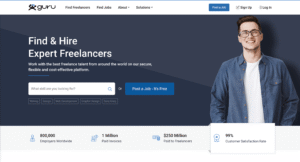
PeoplePerHour
PeoplePerHour is a UK-based freelancing platform that has built a strong presence across English-speaking markets, especially in Europe. It is popular among professionals in design, tech, and marketing, offering both gig-style services and traditional project-based work. Freelancers can post fixed-price packages, known as “Hourlies,” or submit proposals for client projects. This hybrid approach makes it flexible for those who want predictable income alongside more custom engagements. While the platform attracts serious clients, it also has a reputation for being budget-conscious, which can limit earning potential for premium freelancers.
Highlights and Key Features
- Combination of Hourlies (pre-set services) and project bidding.
- Escrow-protected payments to secure transactions.
- Transparent freelancer rankings and client reviews.
- Built-in project management tools to support collaboration.
- Hourly rates often range from 30 to 100 dollars or more, depending on skills and demand.
Pros
- Strong reach in the UK and EU markets.
- Flexibility to sell packaged services or bid on custom projects.
- Reliable payment protection through escrow.
- Visibility tools and rankings help freelancers stand out.
Cons
- Customer support can be slow to respond.
- Many clients focus on lower budgets, reducing premium opportunities.
- Limited presence outside English-speaking markets.
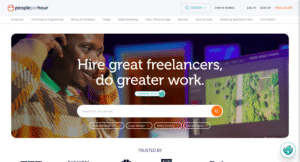
LinkedIn, already the world’s largest professional networking platform, has expanded into freelancing through its Services Marketplace. Instead of functioning as a full freelancing platform, it integrates directly with a freelancer’s LinkedIn profile, allowing them to list services and attract clients organically. Freelancers benefit from the credibility of their existing professional network and visibility through LinkedIn’s search and job board features. While it lacks built-in tools for project management or payments, LinkedIn is powerful for freelancers who are skilled at networking and building direct client relationships.
Highlights and Key Features
- Service listings tied directly to freelancer profiles.
- Job board integration for discovering freelance opportunities.
- Professional credibility through skill endorsements and recommendations.
- Content sharing tools to increase visibility and attract inbound leads.
- Optional premium plans, ranging from 30 to 100 dollars per month, for greater profile exposure.
Pros
- High trust and professional credibility compared to traditional platforms.
- Networking opportunities make it easier to build long-term client relationships.
- Free to use at the basic level.
- Great for freelancers who actively market themselves through posts and engagement.
Cons
- No in-platform payment processing, so freelancers must manage billing independently.
- Lacks project tracking and collaboration tools.
- Still a developing marketplace, with limited traction compared to dedicated freelancing platforms.

Final Takeaway
The UK freelance scene in 2025 is dynamic, with platforms catering to every niche, from Manchester marketers to Glasgow developers. Whether you’re chasing remote tech gigs, local tasks, or creative projects, these websites connect you with clients who value quality.
Pick a platform that aligns with your skills, market, and ambitions to build a freelance career that’s both flexible and rewarding.
